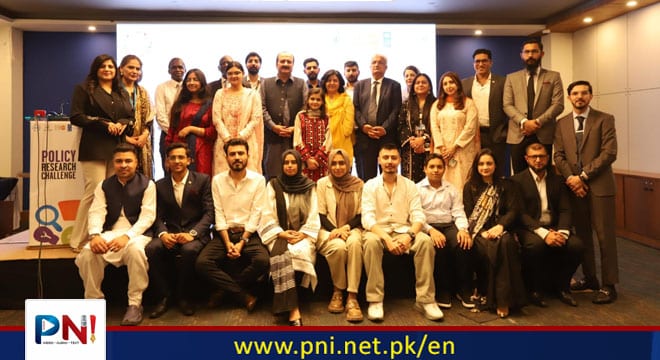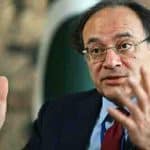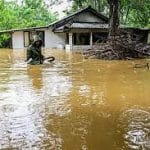Islamabad: 6th June: Under the umbrella of Generation Unlimited, the Youth Policy Lab (YPL) platform has emerged, bringing together UN agencies—UNICEF, UNFPA, UNDP—and the Prime Minister’s Youth Programme (PMYP) in a synergistic collaboration with the School of Leadership Foundation (SoLF). This coalition introduced the Policy Research Challenge (PRC) in 2023, marking a significant stride in involving young people at the policy level. Through the PRC, the YPL gives young people a platform to have their voices heard in policy decisions, ensuring their unique needs are considered during important developmental stages.
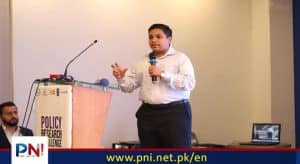
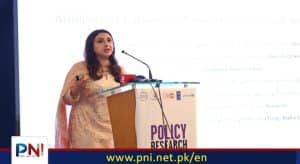
The Policy Research Challenge was meticulously crafted to empower young individuals to critically evaluate and contribute to inclusive climate change policies. This initiative welcomed the perspectives of young people in policy formulation around the domain of Climate Adaptation, honing their research capabilities and encouraging active community involvement.
This initiative has enabled young individuals to contribute significantly to shaping a more equitable, resilient, and promising future for society. The PRC 2023-24 not only scrutinizes climate change mitigation policies but also advocates for inclusivity by identifying gaps, optimizing institutional arrangements, bolstering capacities, and mobilizing support from diverse stakeholders, including the private sector.
To mark the culmination of the Policy Research Challenge, a pivotal roundtable was conducted to stir the dialogue among policymakers from various ministries, private sector stakeholders and young researchers. The event also aimed to bridge the divide between research and policy formulation, and advocating for the inclusion of young people in research and policy recommendations. The young researchers employed a transdisciplinary approach to climate adaptation, exploring issues related to water, education, health, smog, agriculture, and community resilience across districts including Lahore, Johi, Skardu, Swat, Lasbela, Hub, Bahawalpur, and Karachi. This approach highlights the significance of climate adaptation for human capital development in Pakistan.
Representatives from UNICEF, UNDP, and UNFPA attended the event, underscoring the strategic importance of youth empowerment and evidence-based policymaking in achieving sustainable development goals.
Rana Mashood, Chairperson of the Prime Minister’s Youth Program, delivered keynote remarks, emphasizing, “Supporting young people and including them in policy-making to combat climate change is not just important; it is essential.
Their innovative ideas and unique perspectives are crucial in developing effective and inclusive climate policies that will shape a sustainable future.”
Dr. Rubina Ali, Assistant Representative of UNFPA, remarked, “Combating climate change requires innovative and community-based solutions. It requires a new perspective, and who better to offer these solutions than young people who have only known a world grappling with its consequences.”
Inoussa Kabore. Deputy Representative (Programmes) UNICEF Pakistan, highlighted how these researchers have taken a transdisciplinary approach to the topic of climate adaptation and have explored issues faced by them and their communities with regards to water, education, health, smog, agriculture, and community resilience.
A highlight of the roundtable was the Policy Interface Matchup, where adolescent and youth researchers engaged directly with ministry representatives, facilitating a constructive dialogue to align adolescents and youth-driven research with governmental policies, ensuring inclusivity, responsiveness, and efficacy in meeting the needs of Pakistan’s diverse communities.
Professor Dr. Muhammad Mukhtaar, VC National Skills University, concluded the event with remarks highlighting, “The active involvement of young researchers in the Policy Research Challenge has demonstrated their immense potential to drive meaningful change. By aligning their innovative research with governmental policies, we ensure that the voices of the youth are not only heard but also integrated into our national strategies, paving the way for a more inclusive and resilient future.”
The Policy Research Challenge stands as a testament to the transformative power of adolescents and youth in shaping a sustainable world, with their contributions poised to impact future policymaking. Moving forward, these young researchers will be working with the government to provide input on policy matters to inspire positive change, integrating young people’s perspectives into national policies to build a more equitable and resilient future.
About the Organizers:
Generation Unlimited
Generation Unlimited:
A global multi-sector partnership convened by the UN Secretary-General at the 73rd United Nations General Assembly in September 2018. Hosted by UNICEF, Generation Unlimited (GenU) works to ensure that the world’s 1.8 billion youth are connected to the internet, have access to world-class digital learning and skilling solutions and are economically empowered with employment and entrepreneurial opportunities.
UNICEF Pakistan, UNDP Pakistan, and UNFPA Pakistan: Leading United Nations agencies dedicated to promoting youth empowerment and sustainable development in Pakistan. UNICEF ensures access to education, healthcare, and protection for children and adolescents, empowering them to thrive.
UNDP focuses on poverty eradication, reducing inequalities, and promoting resilience through sustainable development goals. UNFPA advances reproductive health, gender equality, and youth empowerment, preparing communities to tackle climate challenges and build resilience in Pakistan.
School of Leadership Foundation (SoLF): SoLF is Pakistan’s leading social development organization that nurtures projects in areas of Education, Citizenship & Peace, Youth Development, Disaster Management, and Health. It is widely recognized for its breakthrough ideas, creative communication, memorable facilitation, and valuable outcomes.
Follow the PNI Facebook page for the latest news and updates.


